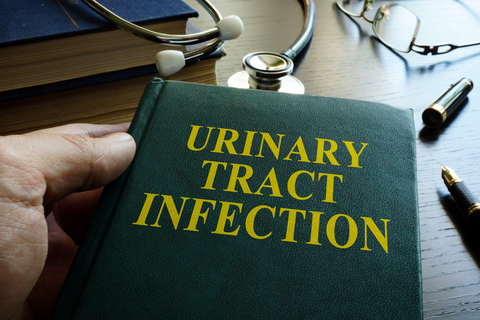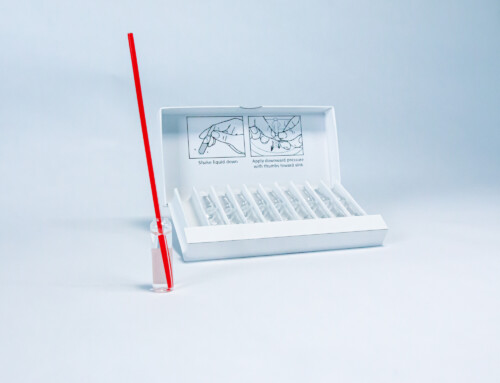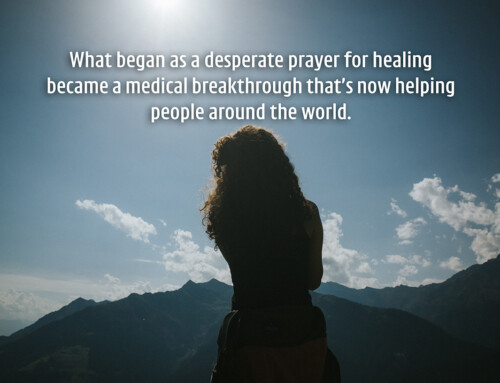By David A. Jernigan, DNM, DC, BS Nutr
To the one suffering, almost nothing is more miserable than a chronic, antibiotic-resistant urinary tract infection (UTI). One woman I spoke to had been on 65 different prescriptions in one year, in an effort to get lasting relief, and is now down to just a few antibiotics that can be tried before there is nothing that can be done. Many people are in the same boat, desperately hoping a new solution will end the nightmare. This article presents new developments that may end the dependence upon antibiotics and indeed end the nightmare.
Antibiotic-resistant bacteria are the rule now, instead of the exception. Research has shown under microscope that bacteria can at times mutate within 20 seconds after the introduction of an antibiotic. In these cases, switching from a pill from of the antibiotic to the IV form will do nothing, since the bacteria have already mutated and are no longer bothered by the antibiotics. The danger is that ultimately there are no more antibiotics to use and the infection spreads into the blood causing sepsis and death.
In the February, 2020 edition of the peer-reviewed medical journal, Antibiotics, the authors of an article titled, Gram-Negative Bacterial Lysins, made a very coherent statement concerning the use of bacteriophages as being superior to any antibiotic ever found, even against mutated strains of antibiotic-resistant microbes:
“Antibiotics have had a profound impact on human society by enabling the eradication of otherwise deadly infections. Unfortunately, antibiotic use and overuse has led to the rapid spread of acquired antibiotic resistance, creating a major threat to public health. Novel therapeutic agents called bacteriophage endolysins (lysins) provide a solution to the worldwide epidemic of antibiotic resistance. Lysins are a class of enzymes produced by bacteriophages during the lytic cycle, which are capable of cleaving bonds in the bacterial cell wall, resulting in the death of the bacteria within seconds after contact.” (emphasis added)
Bacteriophages, otherwise known as phages, are superior to antibiotics in every way. When applied correctly, phages can kill all of the target bacteria only, not killing any of the good, friendly gut bacteria, often within just hours of administration. Phages can get through bacteria biofilms and even into cells, to kill their targeted bacteria. The phages can do this without causing any worsening of symptoms. If that were not enough, when the phages have killed all of the targeted bacteria, the phages themselves die off within a few days, never harming human cells.
UTI’s are often caused by multiple types of bacteria, Candida strains, and other microbes all at the same time, requiring powerful and potentially toxic and harmful anti-bacterial and anti-fungal drugs. If conventional bacteriophage therapy are the treatment of choice, the each type of microbe, and each strain of that microbe, including the mutated strains, all must have a specific type of phage to kill them. Another complexity is that as a person takes antibiotics, the bacteria mutate almost continually, making it difficult to find phages that will kill the newly mutated form of the bacteria.
In an ideal world, phages would replace antibiotics as a first-line treatment for all bacterial and microbial infections.
Consider all the types of known microbes that can cause UTI’s:
- Urinary Tract Infection: mixed Klebsiella pneumoniae, E. Coli, Enterobacter, Citrobacter, Serratia, pseudomonads, enterococci, staphylococci, Staph saprophyticus, Enterococcus faecalis, viral: BK-virus, adenovirus, Cytomegalovirus , Ureaplasma urealytica, Mycoplasma genitialium,
- Interstitial Cystitis: E. Coli, Proteus mirabilis, Klebsiella pneumoniae, Staphylococcus saprophyticus, Klebsiella “mutans,” Candida albicans, Candida glabrata, Schistosomiasis haematobium, Mycobacterium tuberculosis, mixed Staph
- Bladder Infections: Parasitic – Mycobacterium tuberculosis, Viral: T-Lymphotropic-I
- Frequent Urination, (Post fever + Hypotension..): Hanta Virus
Beyond Conventional Bacteriophage Therapy
The newest—and brightest—entry into the phage-biotechnology arena; one that separates itself from other phage-centric therapies being done around the world, by inducing targeted native phages that already reside inside a person’s body, eliminating their host-microbe—and infection—in the process. This novel and patent-pending technology is called Induced Native Phage Therapy (INPT) and is already demonstrating very exciting results.
Native phages are those which entered the body with the type of bacteria, having already infected that bacteria. Every bacterial infection already has its own phage infection before that bacteria enters your body. We call these phages, native phages. Click on this hyperlink to watch a video on how phages infect their host bacteria.
Phages are a key unappreciated component of our immune system. Phages “farm” their hosts. In that phages need their specific host to replicate more phages, the phages unless specifically stimulated via our INPT system, seem to only kill about 40% of their host microbe. (Remember, you are not the host, since the phages only infect other microbes.) According to phage researchers, if a 100% of the host microbes are killed, the phages that need that specific host in order to replicate more phages will themselves die within about three days.
With INPT it is not necessary to find phages from outside of the body to put into the body. All of the wealth of research on phages from around the world is based upon finding phages in nature and painstakingly researching to find or create phages that will kill the type of microbe causing a person’s illness. This is a slow and tedious process, which can take weeks to isolate, propagate, then deliver, not to mention by the time the phage treatment is administered, the bacteria in the body may have mutated even more due to antibiotic pressure, and the phages may not won’t work on those new mutated forms.
We know now that every infection in a human has it’s own phage infection that can be induced to kill all of the infectious microbe, introducing phages from outside the body is unnecessary. INPT induces these phages to not just infect those bacteria but outright annihilate them, quickly and completely, something that has never been possible before.
Phage cure versus antibiotic remission.
Remission is a temporary pause in an illness, while taking a prescription or for a brief period after discontinuing the medication. Every person with a chronic, treatment-resistant UTI understands this perfectly. Because antibiotics are reported to most often only kill up to 85% of the target bacteria, leaving 15% now treatment-resistant mutations of the original bacteria, the best that can be hoped for is remission, or that the human body can somehow keep the rest of the microbes from causing more problems.
Commonly, when the person is stress either physically, emotionally, chemically, or environmentally, or a combination of these, the body’s defenses weaken and the 15% returns with a vengeance. If and when phages can be induced to kill 100% of the target bacteria there can be no remission, since there are no more of the infecting bacteria to regenerate. The person would have to get reinfected in order to get ill once more.
Conclusion
As with all of medicine, there are no guarantees, however clinical and laboratory results with INPT against many types of infections is very encouraging. Continued use of powerful antibiotics may cause mutations to occur in the bacterial infections causing the native phages to no longer be able to infect them, in which case INPT will not work and only externally applied phages from other facilities, such as provided at the G. Eliava Institute of Bacteriophage, Microbiology and Virology in Tbilisi Georgia, just south of Russia, can be utilized.
To learn more about Bacteriophages and INPT please click on the hyperlink to watch a video interview of Dr. Jernigan explaining Induced Native Phage Therapy.
*INPT is a patent-pending innovation developed by PhagenCorp, LLC, and is being researched with the standard treatment programs of bioregulatory medicine for treatment resistant and chronic illnesses at the Biologix Center for Optimum Health, in Franklin, Tennessee. A patient-funded, Retrospective Registry IRB is in place to publish peer-reviewed articles as this clinical work progresses. Approximately 98% of funds go to support the ongoing research.
David A. Jernigan, DNM, DC, BS Nutr., is the founder and CEO of Biologix Center for Optimum Health.




